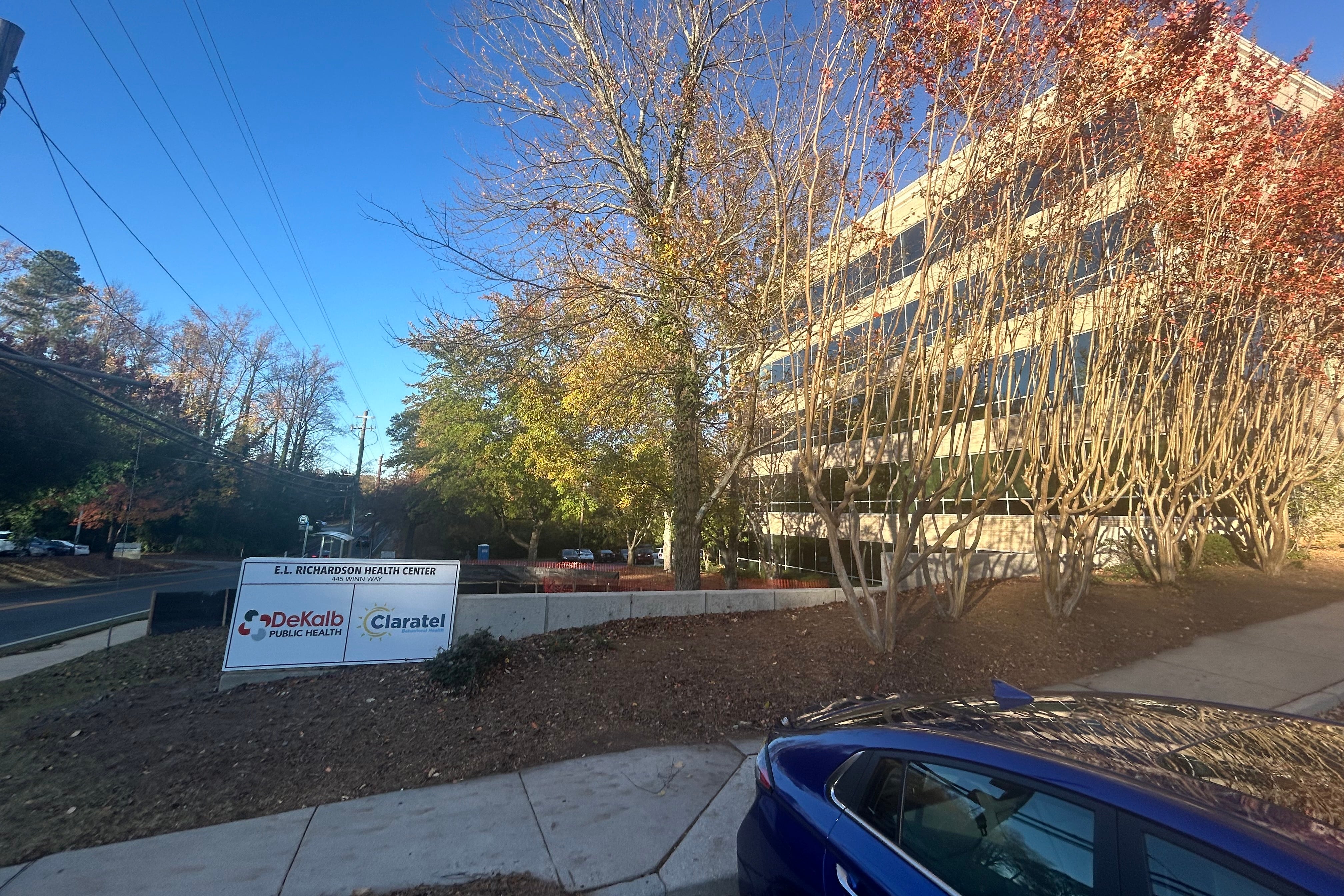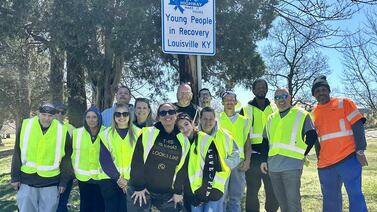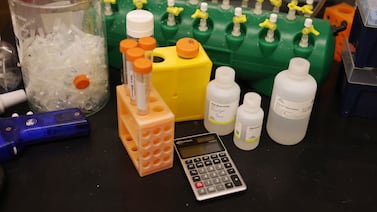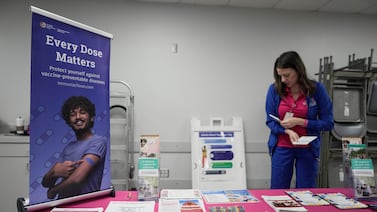Public health, explained: Sign up to receive Healthbeat’s free Atlanta newsletter here.
DeKalb County residents want more options for physical activity and healthy food and better access to health care providers, according to the latest Community Health Needs Assessment.
DeKalb Public Health CEO Dr. Sandra Valenciano presented the findings at a quarterly meeting of DeKalb Public Health’s board Thursday.
Lack of access to those services impact Black, lower-income and South DeKalb residents in particular, according to the assessment. Published in June, it was conducted for DeKalb Public Health by OMNI Institute and incorporated results from a survey of 122 residents and focus groups, along with quantitative data.
Race and location are important in understanding people’s access to health, Valenciano said. In DeKalb, 55% of the population is Black, 7% is Asian, and 9% is Hispanic. Sixteen percent of residents are foreign born, and 19% speak a language other than English at home.
“When we examine the landscape of DeKalb, it’s important to incorporate factors that aren’t necessarily medical factors that can still impact health, and these factors are called the social determinants of health,” Valenciano said.
The county public health agency is focusing on improving trust and information-sharing with the help of a U.S. National Institutes of Health grant.
Staff turnover at the public health agency is also a problem.
DeKalb residents voice need for access to healthy food
Eleven percent of DeKalb residents were food insecure in 2020, according to the report, and 9% of low-income residents had limited access to healthy foods.
Meanwhile, 25% of residents did not have access to large grocery stores.
Four in five residents in a community survey of 122 said the county should focus on improving food access. Some listed nutrition among their top five priorities.
Respondents urged the county to expand access to farmers’ markets and food pantries, promote community gardens, engage with the faith community, and use DeKalb Public Health’s mobile units as farmers’ markets.
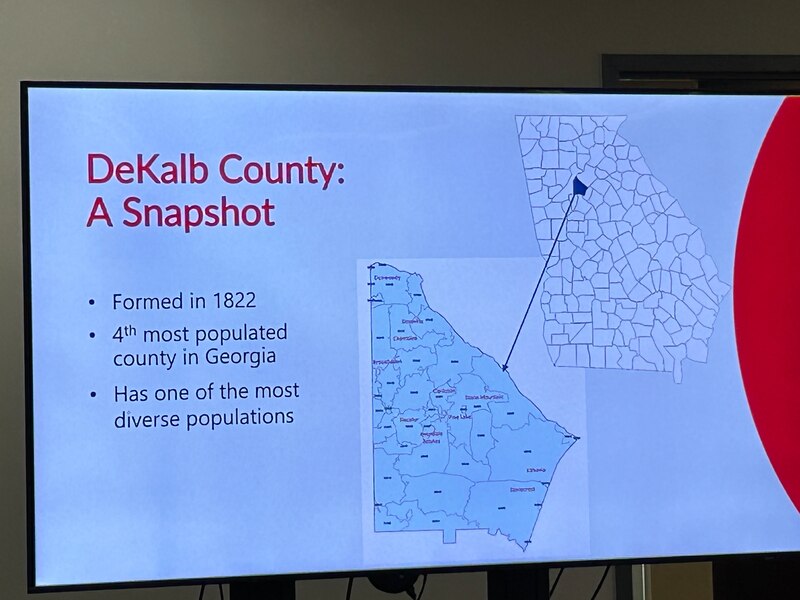
While more adults in DeKalb reported adequate access to exercise opportunities than most Georgians, about a quarter reported no leisure-time activity, at about the same rate as all Georgians.
Meanwhile, nearly 70% reported it is very important for the county to focus on improving opportunities for physical activity. They suggested adding and improving sidewalks and paths for running and walking and making gym memberships and other wellness services more affordable.
More South DeKalb residents asked for more sidewalks, bike paths, recreation centers and parks than those who live in other areas.
Access to health care better in DeKalb, but still low
The ratio of health care providers to the population is better in DeKalb than in the rest of the state, including primary care physicians, mental health providers, and dentists, the report said.
Still, almost a quarter of residents had not seen a doctor in the past 12 months, the report found. Data from 2017 indicated cost and a lack of health insurance as obstacles.
“Among community survey respondents, over 80% of respondents said it is very important for DeKalb County to improve the availability and accessibility of health care providers, to focus on more primary care options, and to provide more support and education on health insurance enrollment and benefits,” Valenciano said.
“One in three respondents reported that there was a time in the past 12 months when they or a loved one who did medical care but could not get it, and, of these individuals, over a third stated that they could not get medical care, due to the lack of insurance,” she added.
Valenciano did not directly address steps the agency plans to take to address the needs identified in the report. Spokesperson Eric Nickens said the findings will be used to develop a Community Health Improvement Plan.
But she said she plans to have the needs assessment done every year, instead of every five years as was the practice before Covid arrived.
Improving information, fighting disinformation are priorities
A lack of information about public health services, and more broadly, health misinformation, are major challenges for DeKalb public health.
Over a third of respondents identified health care providers as the source of most of their health information, and another 20% said they got most health information online.
Some people, including physicians, don’t realize all the services the Department of Public Health offers, Valenciano said. She gave the example of taking her child to the pediatrician and that doctor not realizing the public health department offers flu shots.
“Our providers don’t know where can their patients seek services or things that we’re providing at low cost or no cost,” she said.
On the flip side, some residents who access WIC, the Women Infant and Children supplemental nutrition program, via DeKalb Public Health are also surprised to learn about the many other health services the agency offers, Valenciano said.
Misinformation is also a problem. DeKalb Public Health is one of three pilot sites (the other two are in Mississippi and North Carolina) participating in the second phase of a pilot project to address health disinformation.
Sponsored by the NIH, the Knowledge Monitoring and Response System seeks to leverage community organizations to address health misinformation.
The plan is to use weekly surveys to inform health information and to leverage “trusted messengers.”
The public health department will work with a wide range of community health groups, from the Hispanic Health Coalition of Georgia to New Birth Missionary Baptist Church.
Health department sees high turnover in workforce
About two-thirds of the agency’s roughly $50 million budget goes to personnel costs, said finance manager Phuong Le.
DeKalb Public Health has budgeted for 436 full- and part-time jobs, of which 349 are filled, Nickens said.
Between Aug. 1 and Oct. 31, DeKalb Public Health hired 25 new employees but lost 24 employees. Sixteen resigned, six left because of the ending of seasonal assignments, and two left due to terminations, Valenciano said.
“Our turnover … obviously impacts our ability to carry [out] initiatives,” Valenciano said.
This story has been updated with additional information about staffing and DeKalb Public Health’s plans for addressing community needs.
Rebecca Grapevine is a reporter covering public health in Atlanta for Healthbeat. Contact Rebecca at rgrapevine@healthbeat.org.

